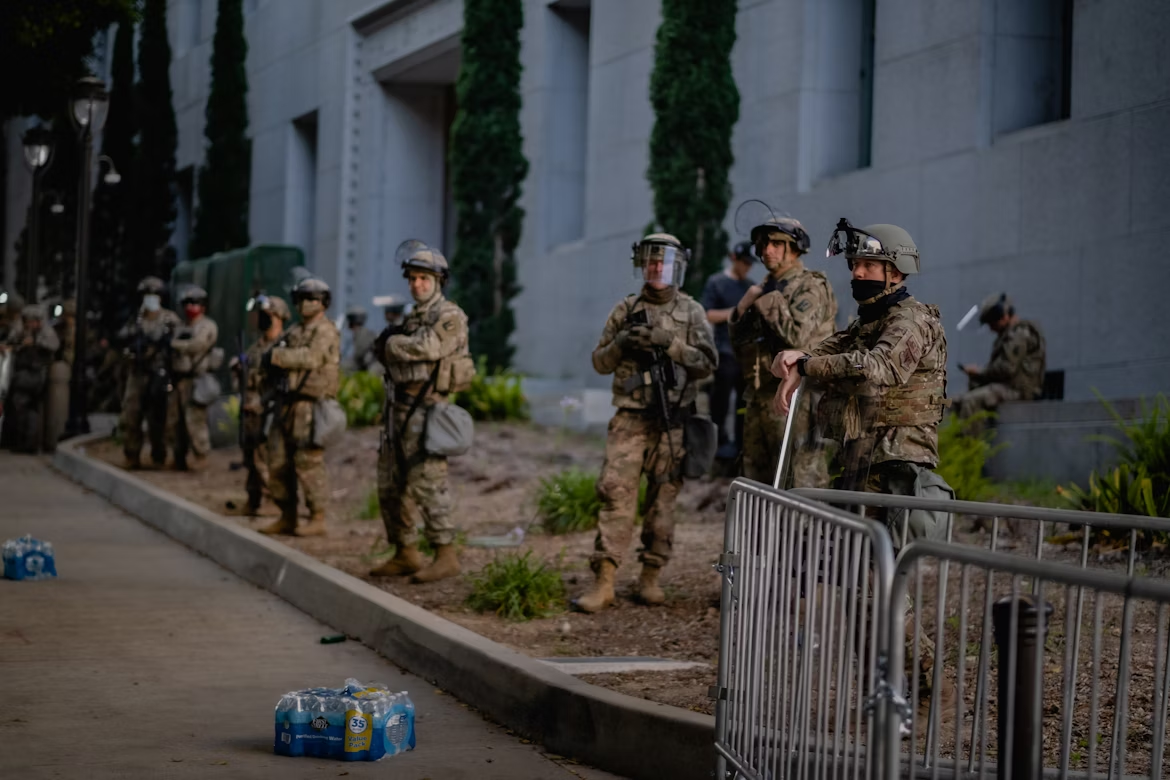President Donald Trump has continued his attempts to deploy the National Guard into American cities. The recent plans for deployment into Portland, Chicago and other areas have triggered conflict with courts and local authorities.
Starting in June with protests against Immigration and Customs Enforcement in Los Angeles, Trump has used civil unrest as justification for state-level troop deployments. Since then, more protests have pushed the president to deploy the National Guard as a necessary measure to contain crime and restore order.
“[The protests] constitute a form of rebellion against the authority of the government of the United States,” Trump said in a presidential memorandum.
Central to the National Guard debate is the city of Portland, Oregon. In recent months, there have been protests outside the ICE facility in the south of the city. On Sept. 27, 200 troops were ordered to the city, resulting in backlash from local lawmakers and authorities.
“The number of necessary troops is zero,” Mayor Keith Wilson said in a statement. “The president will not find lawlessness or violence here.”
Lately, Trump has been citing the Insurrection Act of 1807 to federalize the National Guard, which would put them under presidential control. The act applies to an active state “of insurrection, or obstruction to the laws,” while the primary authority lies with state governors.
Federalizing the National Guard would mean that, under Title 10 of the U.S. Code, the president has authority as commander in chief to deploy them to control instances of rebellion.
Many judges have blocked the deployments across the country, saying that the largely peaceful protests do not fall under the category of insurrection.
Additionally, Trump’s repeated suggestion of ordering the troops of one state into another—such as sending Californian troops to Oregon—is another aspect that is called into question by courts.
U.S. District Judge Karin Immergut of Oregon, a Trump appointee, blocked the move, saying that “there are not many previous precedents from the use of this authority.”
Immergut first issued orders barring President’s Trump deployment of the National Guard on Oct. 4 and Oct. 5. On Oct. 15, she broadened the scope of the restraining orders in addition to extending them by a period of two weeks.
Another major concern of legal authorities regarding the deployment is the constitutionality. The military’s subordination to civil authority is a key component of constitutional interpretation.
Accepting Trump’s legal arguments in favor of deployment, according to Immergut, would “risk blurring the line between civil and military federal power.”
As the situation develops, the legal standoff continues, displaying how the balance between federal and state authority comes into the spotlight yet again at this critical juncture in American history.



